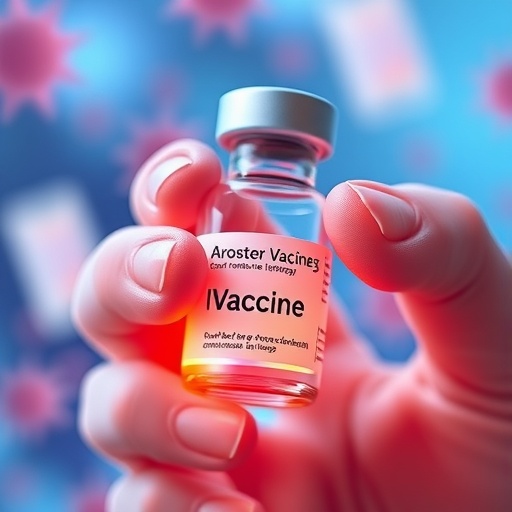In the rapidly evolving field of oncology, the pursuit of personalized cancer immunotherapy has been a focal point of research due to its potential to revolutionize treatment paradigms. A groundbreaking study recently published in Nature Communications unveils a novel approach that leverages neoantigen-enriched biomimetic nanovaccines, heralding a new era in bespoke cancer treatment. This innovative strategy seeks to harness the body’s own immune system with unprecedented specificity and efficacy, targeting tumor cells while sparing healthy tissue, thereby mitigating the collateral damage often associated with conventional therapies.
Cancer immunotherapy has traditionally faced significant challenges, particularly regarding the heterogeneity of tumor antigen presentation and immune evasion mechanisms. Tumors can mutate rapidly, presenting a moving target for the immune system and making the identification of suitable antigens for vaccination a complex task. The concept of neoantigens—tumor-specific mutations that generate novel peptide sequences—is increasingly recognized as a promising avenue for developing personalized vaccines. Unlike shared tumor antigens, neoantigens are unique to individual tumors, offering a highly specific target that can minimize off-target effects and immune tolerance.
Technically, the nanovaccine utilizes a lipid-polymer hybrid framework, conferring optimal stability in vivo and efficient antigen delivery. The lipid component facilitates fusion with the dendritic cell membrane, promoting endosomal escape and antigen cross-presentation along the MHC class I pathway—a process essential for stimulating cytotoxic CD8+ T lymphocytes that directly attack tumor cells. Concurrently, the polymer core preserves the integrity of neoantigen peptides against enzymatic degradation in the bloodstream, ensuring maximal payload delivery at targeted sites.
In rigorous preclinical trials involving murine models implanted with syngeneic tumors, administration of the nanovaccine resulted in robust and durable T cell activation. Notably, treated subjects exhibited significant tumor regression and prolonged survival compared to controls receiving conventional adjuvants or non-specific vaccines. Immune profiling post-treatment revealed a shift toward a pro-inflammatory tumor microenvironment, with elevated levels of interferon-gamma and diminished populations of regulatory T cells known to suppress anti-tumor immunity.
The biomimetic design also incorporates immune checkpoint blockade synergistically within the therapeutic regimen to counteract the immunosuppressive tumor milieu. This dual strategy amplifies the effectiveness of the nanovaccine by unleashing T cells that would otherwise be inhibited by checkpoint proteins such as PD-1 and CTLA-4. The integration of nanotechnology and immune modulation signifies a holistic approach where multiple facets of tumor immune escape are concurrently targeted.
A critical advantage of the neoantigen-enriched nanovaccine platform lies in its adaptability. Because neoantigens are identified in an individualized manner, the vaccine formulation can be rapidly tailored to each patient’s unique tumor mutanome. This responsiveness is powered by advanced bioinformatics pipelines that process sequencing data and predict peptide-MHC binding affinities with remarkable precision. Consequently, this method aligns with the ideals of precision medicine, offering patients therapies that are finely tuned to their genetic and immunologic profiles.
Safety, a paramount concern in clinical translation, was evaluated through comprehensive toxicological assays. The nanovaccine demonstrated minimal systemic toxicity and an absence of adverse autoimmune reactions, a critical outcome that underscores the specificity of neoantigen targeting. This contrasts favorably with earlier immunotherapies that occasionally provoke widespread inflammation or off-target effects due to recognition of self-antigens.
The implications of this research extend beyond its immediate therapeutic impact. By establishing a scalable and modular platform, the authors lay the groundwork for a new class of personalized cancer vaccines that could be adapted to a broad spectrum of malignancies. Tumors with high mutational burdens, such as melanoma, lung cancer, and bladder carcinoma, stand to benefit most, given their wealth of identifiable neoantigen candidates. Moreover, the potential exists to incorporate additional immune stimulatory molecules or adjuvants within the nanostructures to further potentiate responses.
Mechanistically, the work sheds light on the intricate interplay between nanomaterial engineering and immunobiology. The precise control over antigen presentation and the microenvironmental cues provided by the biomimetic design underscore the importance of context in immune activation. It opens avenues for exploring how nanovaccines might overcome other barriers such as the dense extracellular matrix or hypoxic tumor niches that often hamper immune infiltration.
While the study presents a compelling case for clinical advancement, challenges remain. Manufacturing consistency, vaccine stability during transport, and efficient patient-specific neoantigen screening must be optimized for widespread clinical use. Regulatory pathways for individualized therapies also require further clarification to ensure timely patient access while maintaining safety standards.
In the context of the ongoing evolution of cancer treatment, the neoantigen-enriched biomimetic nanovaccine represents a paradigm shift from one-size-fits-all therapies to highly individualized interventions. This transition embodies the essence of modern medical science — precision tailored to molecular and cellular intricacies unique to each patient’s disease. As this platform matures, it may also inspire analogous strategies in other immune-sensitive diseases, expanding its impact well beyond oncology.
Ultimately, this research stands as a testament to the power of combining cutting-edge genomics, materials science, and immunotherapy to overcome some of the most formidable challenges in medicine. It encapsulates a future where the immune system is not merely stimulated but expertly guided by custom-designed nanovaccines to eradicate cancer cells with surgical precision, offering hope for long-term remission and improved quality of life.
Subject of Research: Personalized cancer immunotherapy using neoantigen-enriched biomimetic nanovaccines.
Article Title: Neoantigen enriched biomimetic nanovaccine for personalized cancer immunotherapy.
Article References:
Li, Y., Fang, M., Yu, H. et al. Neoantigen enriched biomimetic nanovaccine for personalized cancer immunotherapy. Nat Commun 16, 4783 (2025). https://doi.org/10.1038/s41467-025-59977-8
Image Credits: AI Generated
Tags: advancements in cancer treatment paradigmsbespoke cancer treatment strategieschallenges in cancer immunotherapygenomic and proteomic analyses in oncologyimmune system targeting tumor cellsimmunotherapy for heterogeneous tumorsminimizing off-target effects in vaccinationneoantigen-enriched biomimetic nanovaccinesnovel peptide sequences in cancer vaccinespersonalized cancer immunotherapyspecificity and efficacy in cancer treatmenttumor-specific mutations in cancer





